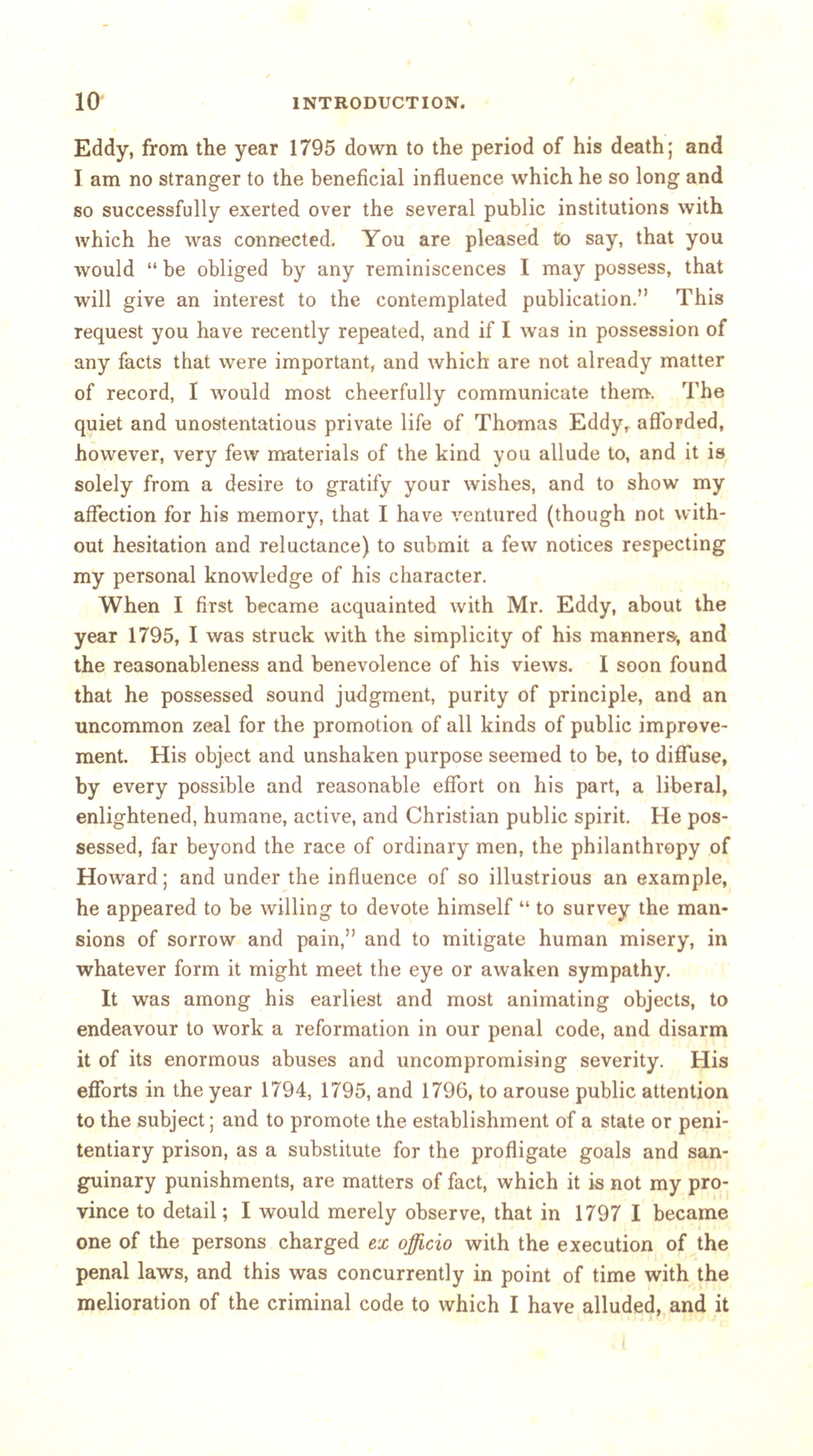I am no stranger to the beneficial influence which he so long and
so successfully exerted over the several public institutions with
which he was connected. You are pleased to say, that you
would be obliged by any reminiscences I may posess, that
will give an interest to the contemplated publication. This
request you have recently repeated, and if I was in possession of
any facts that were important, and which are not already matter
of record, I would most cheerfully communicate them. The
quiet and unostentatious private life of Thomas Eddy
however, very few materials of the kind you allude to, and it is
solely from a desire to gratify your wishes, and to show my
affection for his memory, that I have ventured (though not with-
out hesitation and reluctance) to submit a few notices respecting
my personal knowledge of his character.
When I first became acquainted with Mr. Eddy
year 1795, I was struck with the simplicity of his manners, and
the reasonableness and benevolence of his views. I soon found
uncommon zeal for the promotion of all kinds of public improve-
ment. His object and unshaken purpose seemed to be, to diffuse,
by every possible and reasonable effort on his part, a liberal,
enlightened, humane, active, and Christian public spirit. He pos-
sessed, far beyond the race of ordinary men, the philanthropy of
Howard
he appeared to be willing to devote himself to survey the man-
sions of sorrow and pain, and to mitigate human misery, in
whatever form it might meet the eye or awaken sympathy.
It was among his earliest and most animating objects, to
endeavour to
work a reformation in our penal code, and disarm
it of its enormous
abuses and uncompromising severity. His
efforts in the year 1794, 1795, and 1796, to arouse public attention
to the
subject; and to promote the establishment of a state or
peni-
tentiary prison, as a substitute for the profligate goals and
san-
guinary punishments, are a matter of fact, which it is not my
pro-
vince to detail; I would merely observe, that in 1797 I became
one of the persons charged
ex
officio with the execution of the
penal laws,
and this was concurrently in point of time with the
melioration of
the criminal code to which I have alluded, and it

